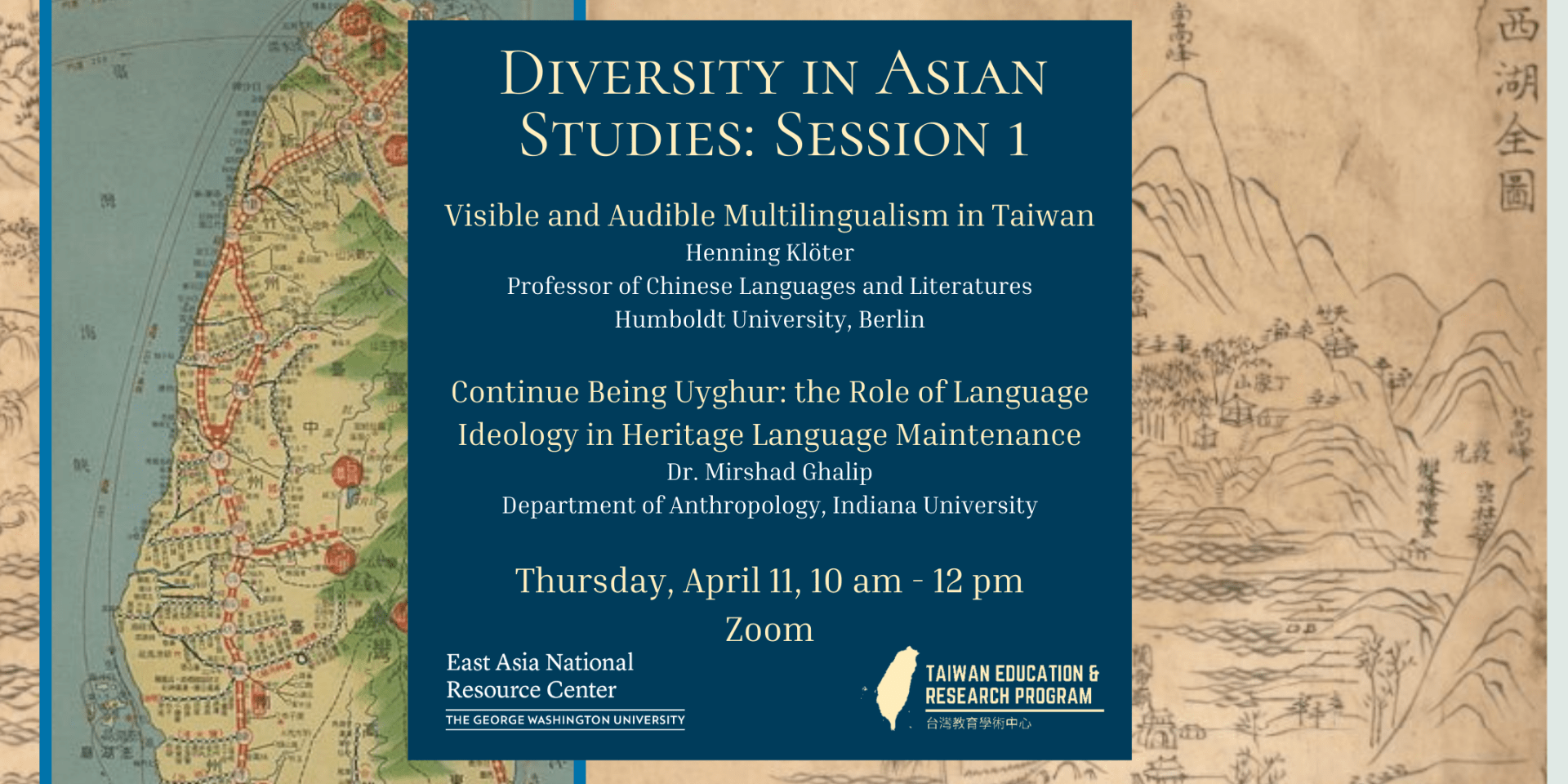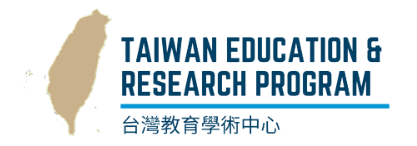Diversity in Asian Studies Events Series Session 1

Thursday, April 11th, 2024 · 10 am-12 pm EST
Virtual talk on Zoom
About this event:
Professor Henning Klöter will provide an overview of Taiwan’s language situation by taking stock of the languages that are currently spoken, their sociolinguistic status and their social and geographical distribution. Special attention will be given to the phenomenon of language shift, i.e. the exclusive use of Mandarin and the discontinuation of regional language use among younger speakers. In the second part of the presentation, he will look at the visible manifestation of different languages in the linguistic landscape of Taipei city. Taking street name signs as an example, he will show that until today, official signage strictly reflects language norms and official standards of the post-1949 period and excludes non-standard linguistic alternatives such as Southern Min or Hakka. The profound ideological shift towards ‘nativisation’ that gathered momentum at the turn of the 21st century has left almost no visible traces on street signage.
Dr. Mirshad Ghalip’s talk will delve into the language attitudes and ideologies of the Uyghur diaspora community in the US and their relationship with efforts to maintain their heritage language. Initially, a quantitative approach was employed via a survey to explore participants language attitudes. Subsequently, qualitative methods were used to delve deeper into these attitudes and ideologies. The study also considers the impact of the Chinese government’s genocidal policies since late 2016 on participants’ language attitudes and ideologies. Data was gathered from 76 participants, revealing a prevailing positive attitude towards the Uyghur language, culture, and identity in the US diaspora. The qualitative findings indicate that language ideology significantly influences heritage language maintenance efforts, particularly ideologies viewing the Uyghur language as integral to Uyghur identity and speaking it as a form of resistance against Chinese government oppression. Furthermore, the data suggests that the Chinese government’s policies are measurably affecting participants’ language attitudes and ideologies, further bolstering their positive outlook towards the Uyghur language.

Professor Henning Klöter is Professor of Modern Chinese Languages and Literatures at the Humboldt University of Berlin and currently Vice Dean of International Affairs at the Faculty of Humanities and Social Sciences. He has previously held positions at the universities of Göttingen, Mainz, Bochum and Taiwan Normal University. His major publications are Written Taiwanese (Harrassowitz 2005) and The Language of the Sangleys: A Chinese Vernacular in Missionary Documents of the Seventeenth Century (Brill 2011). His current research is concerned with language planning, multilingualism and language variation in the Sinophone world.

Dr Mirshad Ghalip is a recently graduated PhD candidate in the Department of Anthropology, Indiana University. His dissertation, titled ‘Uyghur realities: genocide in the homeland, survival in the diaspora,’ combines autoethnographic method with qualitative interviews to explore how atrocities taking place in the Uyghur homeland have influenced the language attitudes and ideologies of the Uyghur diaspora in North America. Mirshad now works on comparative approaches to language policy and cultural maintenance, with a specialization in the language attitude and language maintenance methods of Uyghur diaspora communities around the world.
Registration
The event is open to the public. Guests who register for the event will receive details for joining the Zoom meeting.
The Sigur Center for Asian Studies and GW Institute for Korean Studies (GWIKS) together received the highly regarded designation of National Resource Center (NRC) for East Asian Studies. The designation — the first time these two centers have received NRC status — enhances the institutes’ ability to engage the broader public community, including students, K-12 educators, HBCUs, policymakers, military veterans, journalists and the general public on regional and global issues of importance. With this award, GW joins a handful of other world-leading universities with this honor, including Stanford, Columbia, and the University of Chicago. Additionally, the Sigur Center and GWIKS have been awarded funding for Foreign Language and Area Studies (FLAS) Fellowships which support undergraduate and graduate students studying modern foreign languages and related area or international studies.
The Taiwan Education and Research Program (TERP) was established in 2004 to promote and support both academic and policy-related study and research on the history, international relations, and the contemporary political, economic and social development of Taiwan. The need for more focused and advanced study of Taiwan arises from Taiwan’s unique international position and internal development. Taiwan’s troubled relationship with the People’s Republic of China remains a key issue affecting the foreign policy of the United States and creates broader security concerns for the entire Asia-Pacific region. At the same time, Taiwan’s distinctive experience in areas such as democratization and economic development has made Taiwan a model for other societies and a rich field for comparative study.The Taiwan Education and Research Program operates under the Sigur Center for Asian Studies at The George Washington University’s Elliott School of International Affairs. The program is directed by Liana Chen, Associate Professor of Chinese Language & Literature, and Alexa Alice Joubin, Professor of English, Women’s Gender and Sexuality Studies, Theatre, International Affairs, and East Asian Languages and Literatures.



